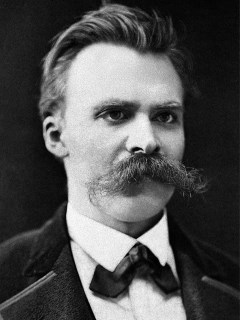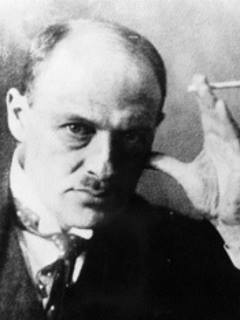Frank Schalow
(2023). Heidegger's ecological turn: community and practice for future generations. London-New York: Routledge.
(2022). Heidegger's ecological turn: community and practice for future generations. London: Routledge.
(2019). The question of the ontological difference in Heidegger's dialogue with Kant. Heidegger Studies, 35, 45-60. https://doi.org/10.5840/heideggerstud2019353.
(2018). New frontiers in Heidegger's original ethics: hermeneutics and the Λόγος of the environmentalist argument. Heidegger Studies, 34, 299-314. https://doi.org/10.5840/heideggerstud20183420.
(2017). Time, Be-ing, and enowning: re-enacting the thinking of Beiträge. Heidegger Studies, 33, 313-328. https://doi.org/10.5840/heideggerstud20173314.
(2017). Toward a phenomenology of addiction: Embodiment, technology, transcendence. Dordrecht: Springer.
(2016). The turning and the question of the political: the need for hermeneutic guidelines. Heidegger Studies, 32, 15-32. https://doi.org/10.5840/heideggerstud2016322.
(2015). The "leaping-off" point for projecting-open the question concerning the political: investigating politics anew. Heidegger Studies, 31, 17-40. https://doi.org/10.5840/heideggerstud2015312.
(2015). The phenomenological elements of addiction: a Heideggerian perspective. In H. Pedersen & M. Altman (eds.) Horizons of authenticity in phenomenology, existentialism, and moral psychology (pp. 165-178). Dordrecht: Springer.
(2014). A look at recent literature on technicity, machination, and the turning: Part II. Heidegger Studies, 30, 79-95. https://doi.org/10.5840/heideggerstud2014305.
(2013). The "ownmost sway" of technicity and its hermeneutic guideline (Part I). Heidegger Studies, 29, 51-66. https://doi.org/10.5840/heideggerstud2013293.
with KALARY Thomas (2011). Attunement, discourse, and the onefold of hermeneutic phenomenology: recent Heidegger-literature and a new translation of his work in critical perspective. Heidegger Studies, 27, 199-219. https://doi.org/10.5840/heideggerstud20112710.
(2011). A conversation with Parvis Emad on the question of translation in Heidegger. In F. Schalow (ed.) Heidegger, translation, and the task of thinking (pp. 175-189). Dordrecht: Springer.
(2011). Attunement and translation. In F. Schalow (ed.) Heidegger, translation, and the task of thinking (pp. 291-311). Dordrecht: Springer.
(2011). Introduction. In F. Schalow (ed.) Heidegger, translation, and the task of thinking (pp. 11-46). Dordrecht: Springer.
(ed) (2011). Heidegger, translation, and the task of thinking: essays in honor of Parvis Emad. Dordrecht: Springer.
with DE GENNARO Ivo (2010). Translation, tradition, and the other onset of thinking. Heidegger Studies, 26, 97-124. https://doi.org/10.5840/heideggerstud2010266.
(2009). A conversation with Parvis Emad on the question of translation in Heidegger. Heidegger Studies, 25, 219-230. https://doi.org/10.5840/heideggerstud2009258.
(2009). The impact of Contributions to philosophy: liberating ontology and its critical implications for the reductionistic interpretations of Heidegger's thought. Heidegger Studies, 25, 25-47. https://doi.org/10.5840/heideggerstud2009251.
(2007). Freedom, truth, and responsibility: a critical look at the recent translations of the Gesamtausgabe. Heidegger Studies, 23, 95-111. https://doi.org/10.5840/heideggerstud2007235.
(2007). Locating the place of translation. Studia Phaenomenologica, 7, 523-533. https://doi.org/10.7761/SP.7.523.
(2004). How viable is Dreyfus's interpretation of Heidegger?: anthropologism, pragmatism, and misunderstanding of texts. Heidegger Studies, 20, 17-33. https://doi.org/10.5840/heideggerstud2004202.
(2003). Kant, Heidegger and the performative character of language in the first critique. Epoché, 8 (1), 165-180. https://doi.org/10.5840/epoche2003813.
(2002). The unity of Vorträge und Aufsätze and its loss in the English translations. Heidegger Studies, 18, 45-58. https://doi.org/10.5840/heideggerstud2002183.
(2001). Heidegger and the quest for the sacred: from thought to the sanctuary of faith. Dordrecht: Springer.
(2000). Questioning the search for genesis: a look at Heidegger's early Freiburg and Marburg lectures. Heidegger Studies, 16, 167-186. https://doi.org/10.5840/heideggerstud2000168.
(1998). Language and the social roots of conscience: Heidegger's less traveled path. Human Studies, 21 (2), 141-156. https://doi.org/10.1023/A:1005312105548.
(1995). Beyond decisionism and anarchy: the task of re-thinking resolve. Man and World, 28 (4), 359-376. https://doi.org/10.1007/BF01273738.
(1995). Language and the etymological turn of thought. Graduate Faculty Philosophy Journal, 18 (1), 187-203. https://doi.org/10.5840/gfpj19951818.
(1995). The question of identity and its recollection in Being's historical unfolding. Heidegger Studies, 11, 151-165. https://doi.org/10.5840/heideggerstud1995117.
(1993). The Gesamtausgabe Nietzsche: an exercise in translation and thought. Heidegger Studies, 9, 139-152. https://doi.org/10.5840/heideggerstud199399.
(1991). The anomaly of world: from Scheler to Heidegger. Man and World, 24 (1), 75-87. https://doi.org/10.1007/BF01248847.
(1990). Imagining the good: politics in transition. Research in Phenomenology, 20, 188-194. https://doi.org/10.1163/156916490x00126.
(1987). Re-opening the issue of world: Heidegger and Kant. Man and World, 20 (2), 189-203. https://doi.org/10.1007/BF01252289.
(). The third critique and a new nomenclature of difference. Epoché, 4, 71-95. https://doi.org/10.5840/epoche1996416.
(). The will as the genuine postscript of modern thought: at the crossroads of an anomaly. Epoché, 1, 77-104. https://doi.org/10.5840/epoche1993112.







